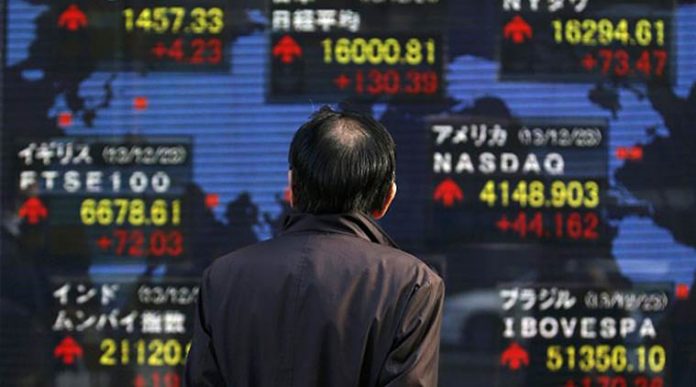Sydney: The euro took a knock in Asia on Monday as investors kept an anxious eye on an independence vote in Spain’s Catalonia, although surprisingly strong economic news out of China and Japan offered support to equities and commodities.
The euro fell 0.3 percent after the violence-marred vote to trade at $1.1773, with liquidity lacking given holidays in China and South Korean markets.
Spanish police used batons and rubber bullets to thwart an independence vote in Catalonia on Sunday in a show of force that left hundreds injured, according to Catalan officials, and presented Madrid with a huge challenge to calm tensions in the region.
The situation was fluid, with the head of the regional government opening the door to a potential declaration of independence from Spain.
Dealers emphasized there had been no major selling of euros as yet and neither was there any flow to safe havens, with investors reserving judgment.
As a result, the dollar was firmer on the Japanese yen at 112.88 and up 0.3 percent on a basket of currencies at 93.381. Gold eased in response to $1,275.06.
The dollar was aided by speculation President Donald Trump might choose former Federal Reserve Governor Kevin Warsh to head the central bank.
Warsh is considered more hawkish than current chair Janet Yellen so his appointment might lead to faster hikes in interest rates. The risk was enough to nudge yields on two-year Treasuries up to 1.503 percent, ground not visited since late 2008.
ENCOURAGING ECONOMIC NEWS
Asian shares were faring better than bonds after upbeat economic data from China, Japan and South Korea augured well for a sustained pickup in global growth.
MSCI’s broadest index of Asia-Pacific shares outside Japan added 0.28 percent, while E-Mini futures for the S&P 500 rose 0.14 percent.
Australia’s main index jumped 1.1 percent, while Japan’s Nikkei inched up 0.2 percent after a survey of manufacturers produced the strongest sentiment reading in a decade.
China’s manufacturing activity grew at the fastest pace since 2012 in September as factories cranked up output to take advantage of strong demand and high prices.
The official Purchasing Managers’ Index (PMI) released on Saturday rose to 52.4 in September, from 51.7 in August.
Higher memory chip and steel product sales helped South Korea’s exports surge 35 percent year-on-year to a record in September, notching the longest stretch of expansion since 2011.
China’s central bank also cut the amount of cash that some banks must hold as reserves for the first time since February 2016 in a bid to encourage more lending to struggling smaller firms and energize its lackluster private sector.
All of which was considered positive for commodity demand. Copper enjoyed its fifth consecutive quarterly gain on expectations of strong demand from top metals consumer China.
Three-month copper rose a further 0.7 percent on Monday to stand at $6,525 a tonne.
In oil markets, Brent boasted its strongest third-quarter price performance since 2004 amid firm global demand and supply restrictions.
Brent for December delivery was off 18 cents at $56.61 a barrel, while U.S. crude eased 9 cents to $51.58.




